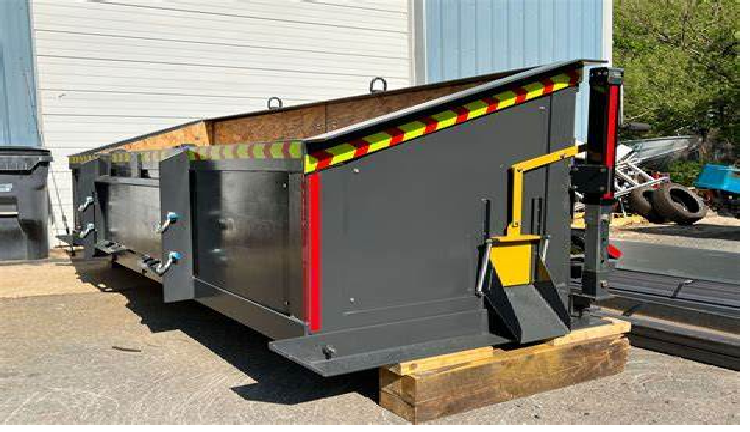Introduction
Managing waste effectively is a critical component of any project, whether it’s a home renovation, commercial cleanup, or construction endeavor. Dumpster rentals provide a practical and efficient solution for handling large volumes of debris, ensuring projects stay organized and on track. Understanding how to choose the right dumpster and use it effectively can save time, reduce costs, and simplify waste disposal.
This guide explores the benefits of dumpster rentals, tips for selecting the right size, and best practices for optimizing their use. For reliable and hassle-free service, companies like Hiep Sanitation offer expert dumpster rental and roll-off services tailored to your needs.
The Benefits of Dumpster Rentals
Dumpster rentals streamline waste management by providing a convenient and centralized solution for debris disposal.
Key Advantages
- Time Efficiency
- Eliminates multiple trips to the landfill, allowing more focus on the project.
- Saves time by consolidating waste in a single location.
- Cost Savings
- Reduces transportation expenses associated with hauling waste.
- Prevents potential fines from improper disposal methods.
- Safety and Organization
- Keeps work sites clean and free from hazardous debris.
- Reduces the risk of accidents caused by clutter or improperly stored waste.
Choosing the Right Dumpster Size
Selecting the appropriate dumpster size is essential for maximizing efficiency and avoiding unnecessary costs.
Common Dumpster Sizes
- 10-Yard Dumpsters
- Best For: Small projects like garage cleanouts or minor home renovations.
- Capacity: Can hold up to 3 pickup trucks of debris.
- 20-Yard Dumpsters
- Best For: Medium-sized projects such as roofing or basement cleanouts.
- Capacity: Can handle up to 6 pickup trucks of waste.
- 30-Yard Dumpsters
- Best For: Large-scale renovations, landscaping, or commercial cleanups.
- Capacity: Suitable for up to 9 pickup trucks of debris.
- 40-Yard Dumpsters
- Best For: Major construction projects or industrial uses.
- Capacity: Handles up to 12 pickup trucks of material.
Optimizing Dumpster Placement
Proper placement of your dumpster ensures safety and accessibility while minimizing disruptions.
Placement Tips
- Choose a Flat Surface:
- Avoid slopes to prevent tipping or instability.
- Ensure Accessibility:
- Place the dumpster in a location that is easy to access for loading and removal.
- Protect Your Property:
- Use plywood or mats under the dumpster to prevent damage to driveways or lawns.
- Follow Regulations:
- Verify local ordinances regarding dumpster placement on streets or public property.
Items Suitable for Dumpster Disposal
Understanding what can and cannot be placed in a dumpster ensures compliance with regulations and environmental standards.
Allowed Items
- Construction Debris: Includes drywall, wood, metal, and tiles.
- Household Items: Furniture, appliances (without hazardous components), and general clutter.
- Yard Waste: Branches, leaves, and grass clippings.
Prohibited Items
- Hazardous Materials: Paints, chemicals, and batteries require specialized disposal.
- Electronics: E-waste often needs to be recycled separately.
- Tires and Fluids: Typically not allowed in standard dumpsters.
Best Practices for Efficient Dumpster Use
Maximizing the efficiency of your dumpster rental ensures you get the most value from the service.
Load Strategically
- Place large, flat items like boards and panels at the bottom to create a stable base.
- Break down bulky items to save space.
Avoid Overfilling
- Adhere to the dumpster’s fill line to prevent excess charges or difficulties during transport.
- Spread debris evenly to avoid imbalances.
Separate Waste Types
- Group materials like wood, metal, and recyclables to facilitate proper disposal.
- Label separate piles if using multiple dumpsters for different waste types.
When to Consider Roll-Off Services
Roll-off services are ideal for projects generating significant waste volumes or requiring flexible disposal solutions.
Benefits of Roll-Off Dumpsters
- Versatility: Suitable for residential, commercial, and construction applications.
- Ease of Use: Delivered to and picked up from your site, minimizing effort.
- Capacity: Accommodates large amounts of waste efficiently.
Hiep Sanitation Rockland County offers professional roll-off services that simplify waste management for projects of any scale.
Managing Waste Responsibly
Dumpster rentals also play a role in promoting sustainable waste management practices.
Tips for Eco-Friendly Disposal
- Recycle Whenever Possible: Separate recyclable materials like metal, cardboard, and plastics.
- Compost Yard Waste: Use yard clippings and organic materials for composting instead of landfill disposal.
- Donate Usable Items: Furniture or appliances in good condition can be donated to charities.
The Role of Professional Dumpster Rental Services
Working with a professional dumpster rental company ensures a smooth and efficient experience.
Benefits of Hiring Professionals
- Expert Recommendations: Professionals help determine the right dumpster size and placement.
- Compliance Assurance: They handle permits and ensure adherence to local disposal regulations.
- Convenience: Scheduled drop-offs and pickups eliminate logistical hassles.
Hiep Sanitation provides reliable dumpster rental services that cater to both residential and commercial projects, ensuring seamless waste management.
Conclusion
Dumpster rentals are a practical and efficient solution for managing waste during any project. By choosing the right size, following best practices, and working with a trusted provider, you can simplify waste disposal while maintaining a clean and organized workspace.
For hassle-free dumpster rental and roll-off services, Hiep Sanitation offers expert assistance tailored to your needs. Whether it’s construction debris removal or residential cleanup, a well-planned dumpster rental ensures your project runs smoothly from start to finish.






